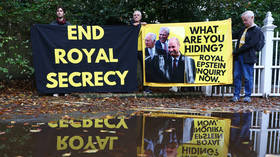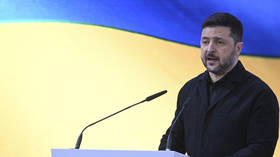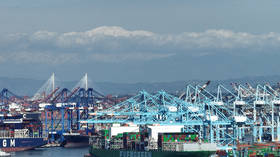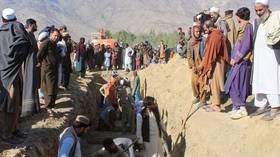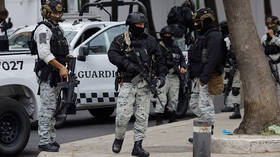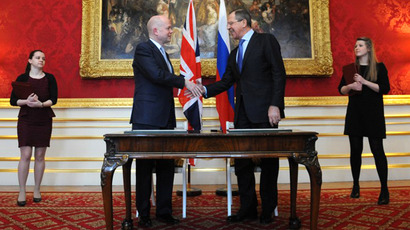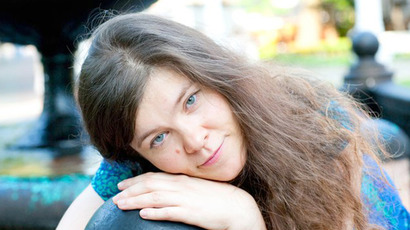Syria conflict may spin out of control, 2 years on
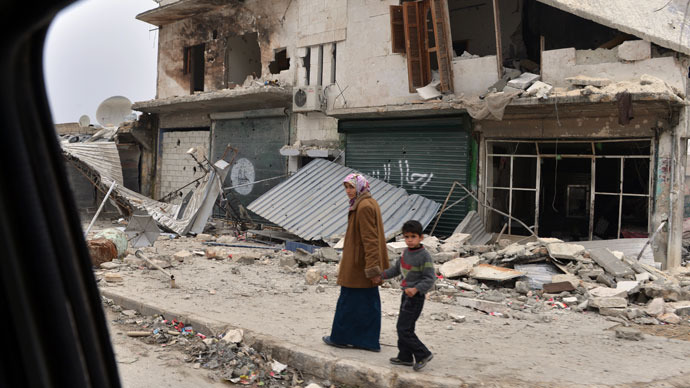
Two years since the start of the Syrian conflict inspired by the Arab Spring before turning into a bloody civil war, there is no solution in sight. And if EU countries start to openly arm rebels, the escalation is likely to reach a whole new level.
Negotiations between the opposition and the Syrian President
Bashar Assad’s regime along with pressure from the international
community have so far failed to resolve the conflict peacefully.
In February the Syrian government expressed its readiness to
negotiate “with anyone who wants dialogue”, including armed
groups. The opposition remains divided with rebel fighters refusing
to talk until President Assad steps down and leaders of the army
and security forces are put on trial.
Syria has been torn apart by violence with the UN estimating
more than 70,000 people being killed and over 2 million internally
displaced in the two-year uprising against the government of Bashar
Assad.
The conflict has also caused immense economic damage already estimated at US$80 billion, according to former deputy premier for economic affairs under President Bashar Assad, Abdullah Dardari. “Economics alone can fragment Syria if we go on like this,” Dardari told the Reuters.

While Syria’s deficit is estimated to reach US$10 billion in
2013, a jump from US$3 billion in 2012, SANA reported.
Syria differs from other Arab Spring revolts, as Bashar Assad did
not step down within weeks, like the leaders of Tunisia and Egypt.
Nor did his regime fall within months, like Colonel Gaddafi’s in
Libya.
Syrian opposition has gone beyond just demonstration and
clashes, making killing by both sides an everyday reality with each
blaming the other for the atrocities.
Amnesty International has warned that Syrian rebels have
increasingly resorted to torture and the summary execution of
soldiers, suspected informants, pro-government militias and
captured or kidnapped civilians.
“[Rebel fighters] are summarily killing people with a
chilling sense of impunity, and the death toll continues to rise as
more towns and villages come under the control of armed opposition
groups," Amnesty said.
In a separate report, Amnesty accused government forces of
ramping up indiscriminate air and artillery attacks on civilian
populations in recent months.
Others say the conflict is being fuelled from the
outside.
“It is part of America’s and western strategy to destroy Syria by Syrians and by Arabs and this they are doing successfully”, International law professor Daoud Khairallah told RT.

Paris and London announced in March that they will call for an early unscheduled EU meeting on the Syrian arms embargo, which needs to be renewed every three months, in order to lift the ban. The two nations want the next review to be held this month, rather than in May. If the EU does not end the embargo, the two nations may still arm the Syrian rebels, France hinted.
Russian Foreign Minister Sergey Lavrov responded that plans to
arm the Syrian rebels would violate international law. Russia has
remained firm that any kind of foreign intervention will only make
the conflict worse.
The EU imposed the arms embargo, and other sanctions, against
Syria in May 2011, following two months of conflict in the
country.
RT contributor Afshin Rattansi believes that the Western
strategy will eventually backfire if they arm rebels in Syria. And
that those who wanted to see the fall of the regime may witness the
country’s fall instead.
“It is sad that these countries [the UK and France] can think
of arming these Islamists because the blowback will be
phenomenal”, Rattansi said.
The US expresses increasing concern when it comes to arming
Syrian rebels, despite the fact that it recently announced that it
will provide the opposition forces with US$60 million in aid.
Secretary of State John Kerry took a clear stance at the end of
February stating that Washington will not provide weapons to
opposition fighters fearing that the weapons may fall into the
hands of Jihadists.
However, there have been media reports of some countries
offering military support to Syrian rebels.
According to Reuters sources, Turkey is directing the rebel fight
against Bashar Assad, after setting up a secret base on its border
with Syria, with help from Qatar and Saudi Arabia who allegedly
supply weapons to anti-Assad fighters. Also, foreign
instructors are reportedly training Syrian rebels in modern warfare
in Jordan. The military training focuses on the use of anti-tank
weaponry, der Spiegel recently reported, citing what it said were
participants and organizers. American, British and French
instructors are reportedly taking part.

Diverse Syria, in pieces
Syria is a predominantly a Sunni country, but it is also home to
other Muslim denominations, among them the Alawites, an offshoot of
Shia Islam, Christians and other religious minorities.
For centuries Syria has been known for its many ethnic and
religious groups living in peace and harmony. Now some warn that it
can be used to destroy Syria.
One of the significant blows to diversity in Syria was dealt to
relations between the country’s Sunni majority and the ruling
Alawite minority to which President Bashar Assad belongs.
“Some of the opposition fighters are trying to make the
conflict sectarian. But it is not about one sect fighting the
other”, a local journalist, who requested anonymity, told
RT.
Hearing about sectarian intolerance is something new for Syria,
argues researcher Gabriel Cablo.
“We feel this pressure for months now - especially from Gulf
countries - trying to drag us to this perilous Shia-Sunni game.
It’s a big threat because it tears society from the
inside.”
Palestinian refugees in Syria who found a new home there amid
the Israeli-Palestinian conflict were caught in the fighting, their
camps attacked. This drove a wedge between the two Arab peoples,
previously on friendly terms.
“They wanted to both weaken the regime and spread despair
among Palestinians. It’s clear - desperate and destabilized society
is a weak one”, says member of People's Front for Liberation of
Palestine, Anwar Raja.
Some 600,000 Palestinians currently live in Syria, according to the
Palestinian Authority president Mahmoud Abbas.

The Kurdish population in Syria’s north-east were also affected
and the Kurdish-Syrian peaceful coexistence has been
threatened.
“Syrian Kurds want to be integrated into Syrian society, have rights and be respected. We’ve never been treated like that. But of course when violence targets us - it cannot not affect relations”, member of Syrian Kurdish Initiative Ismail Ibrahim Shaouish told RT.

Many Kurds from Aleppo fled the hostilities by moving north, to
Kurd-populated areas that are relatively safe. Even those parts
feel the impact of the crisis, however: a village that used to be
home to some 10,000 residents currently accommodates five times
that number.
Making things more complicated are the surrounding regional and
neighboring states that flood Syrian borders with fighters, weapons
and extremist ideology, allowing for the presence of radical
Islamic groups including Al-Qaeda, working in Syria under the
façade of the al-Nusra front, argues RT’s contributor Danny
Makki.
“Foreign radical fighters are what the Syrian government
clearly fears the most, their presence; thought to number thousands
is encouraged by regional powers such as Turkey and Saudi Arabia,
making it a state-on-state clash which is being waged on Syrian
soil,” he said.


